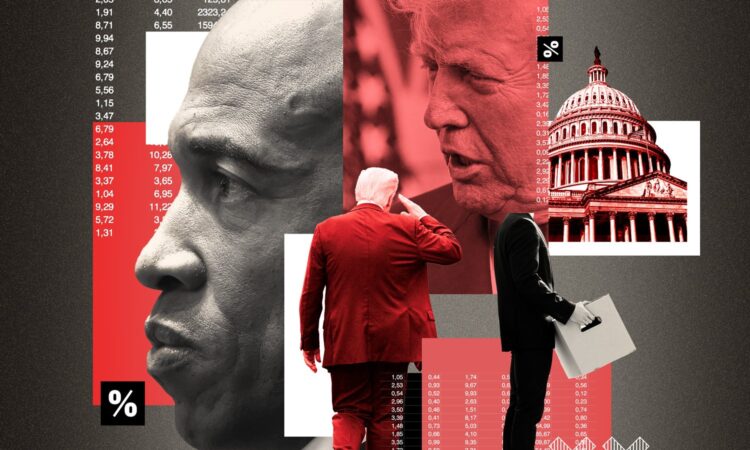
As the federal government shutdown crossed the two-week mark, its effects are starting to trickle down from congressional gridlock.
Some of the immediate effects were clear after Congress failed to vote on a budget bill to keep the government open. The National Flood Insurance Program expired on Sept. 30, leaving coverage (for 1.8 million policyholders in Florida alone) up in the air. The lapsed program could hold up closings in the state, which faces an outsized risk with extensive coastal zones during hurricane season.
But effects of a federal shutdown on real estate are expected to become more severe over time. Here are three things to watch as the gridlock continues:
Data blindspots
Some federal agencies have stopped collecting, analyzing and reporting national data. That makes it harder for markets and policymakers to know what’s happening in the economy and make adjustments accordingly.
For example, the Bureau of Labor Statistics has not put out a jobs report in October. Employees are being called back to produce an inflation report for this month. Members of the Federal Reserve’s board use these reports to make decisions about the interest rates it sets, which effects other rates throughout the market.
The report is set to be released Oct. 24. The Fed’s committee on markets is scheduled to meet Oct. 28 and 29.
More headaches for HUD
Heavy layoffs at the Department of Housing and Urban Development is operating during the shutdown with about a quarter of its staff, according to some estimates. The agency had already seen about 23 percent of its workforce let go before late September, according to an estimate by the National Low-Income Housing Coalition.
The agency is responsible for housing vouchers like Section 8, as well as support for local public housing departments. HUD can fulfill obligations it already committed to using the funds at its disposal. When those run out, HUD won’t be able to pay its obligations. That means landlords who are paid using federal housing vouchers won’t see that money coming in.
In an op-ed in conservative outlet The Daily Caller, HUD Secretary Scott Turner said the shutdown will delay insurance applications for healthcare projects totaling 12,800 beds and nearly $2 billion in mortgages.
Mortgage rate nerves
Mortgage rates opened September with the biggest drop in a year after months of declines.
So far under the shutdown, things have remained steady. Mortgage rates, as measured by Freddie Mac, remained around their monthly average last week. Rates for 30-year fixed-rate mortgages average 6.3 percent, a 0.04 percentage point decline from the previous week. Rates for fixed-rate 15-year mortgages average 5.53 percent, a 0.02 percentage point change from the previous week.
As time goes on, it’s possible for the shutdown to encourage mortgage rates’ downward trend. If investors lose faith in the general economy, they could start putting more of their money in Treasury bonds, as long as those are still considered safe investments. Demand for those bonds lowers their yields, which mortgage lenders use to set rates.
The Federal Reserve is also expected to the cut interest rates again in October and December
Read more

Real estate braces for impact of government shutdown

Government shutdown: Four things for real estate to watch

Here’s how the government shutdown could affect the housing market




